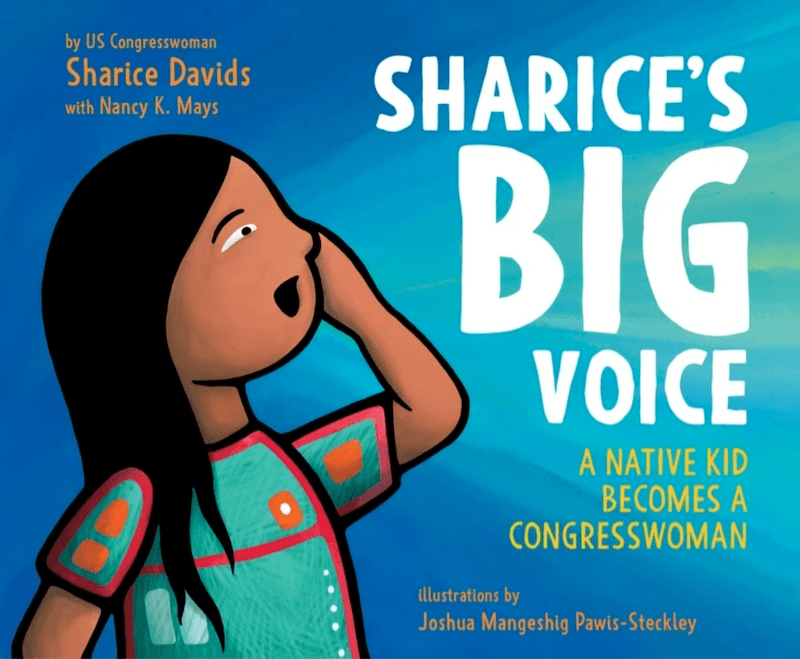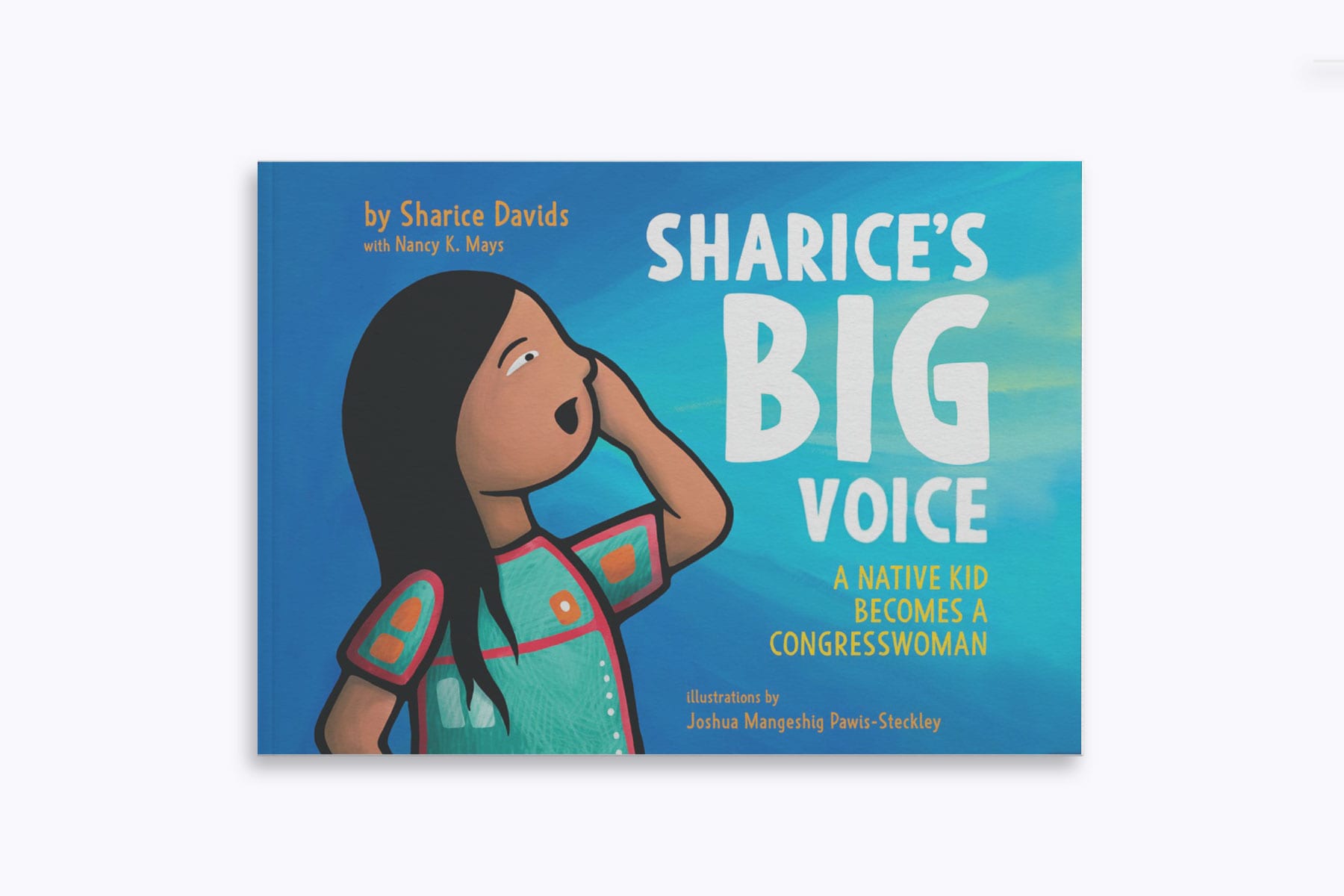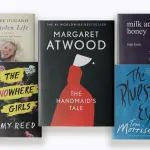Rep. Sharice Davids didn’t intend to release a Pride Month book: The fact that “Sharice’s Big Voice: A Native Kid Becomes a Congresswoman,” her first children’s book, came out on June 1 was a “happy coincidence,” she said. And yet, at a moment when anti-LGBTQ+ bills — most targeting kids — are speeding through state legislatures, the Kansas representative’s timing seems spot on.
“Sharice’s Big Voice” is a joyful exploration of Davids’ experience growing up Native in Kansas and a love letter to the single mother who raised her. Readers follow Davids as she learns that her unremitting desire to be heard had a purpose (beyond getting her kicked out of her elementary school classroom). The fact that Davids, the first out LGBTQ+ member of Congress from Kansas, is a lesbian is not discussed in depth — mostly because for Davids, coming out was unremarkable.
The 19th caught up with Davids to talk about why she wanted to write a children’s book, what she hopes young people take from hers, and the anti-trans legislation rattling queer communities across the nation.
This interview has been edited for length and clarity.
The 19th: Why was this a project you wanted to do?
U.S. Rep. Sharice Davids: I had the idea about writing a kids’ book, and then I found out that there were so few books with any kind of Native representation — I think it’s like 1 percent of kids’ books have any kind of Native representation. Staggering is the only way I can think to describe it. I was thinking that when you’re a kid … I think a lot of us feel invisible or small not seeing that sort of thing. And I feel like this book can in some ways help people see that their journey might be unique, but it’s really important.
Did you feel like you had books growing up that reflected who you were?
I don’t have one of those experiences that is like, ‘Oh, I read this book, and I just really connected with it,’ or ‘I was really inspired by this book’ or anything like that. It wasn’t until I was thinking about just how low the numbers are of books that are reflective of what our society is actually like that it made sense: I didn’t feel that because there wasn’t really anything that probably spoke to me in that way.
What was the creative process like for you?
It was strange, because since it’s a children’s book, literally every single word is super important because it’s not super long. When trying to decide which stories to share … I guess I haven’t had to think about fitting that into how I talk to people about my experience, because so often, as adults, we were talking about the business of the day or something.

I hope that when children and parents are seeing this book, what they’re seeing are all these experiences that we’re having that are part of this journey that twists and turns and has obstacles and sometimes really awesome parts, but that the entire path or journey is really important. That can really shape how we see the world and also what we see as success, because we’re the ones that get to decide what success means.
That’s interesting that you talk about what you see as success, because you are someone that most people would consider successful as a congresswoman. But it seems like what you’re saying is that there’s a different lesson here about what success is. What would you say that success is for young people?
I think it’s kind of funny that the name of the book is ‘Sharice’s Big Voice: A Native Kid Becomes a Congresswoman.’ I think folks might look at that title and think this will inspire kids to run for Congress, but this is more a book about embracing your own unique path, and I hope that when people read the book what they see is that the message is that you get to decide what success means for you and not anybody else.
This book is a reflection for a lot of queer young people of color, especially at a time when a lot of state legislatures are pushing a lot of anti-trans bills. And I’m wondering where you’re sitting with what’s happening in the country and what you hope the book might do for those kids.
It’s, of course, really concerning to see the anti-LGBT bills that have seen coming out across the country. It’s heartbreaking because I know that especially our LGBTQ+ youth often hear messages that are not affirming or validating of their experience. One of the things that I hope that people can get from this book, or books like this, is that you are important, your voice deserves to be heard.
You write a lot about being Native and being asked uncomfortable questions as a kid. You write less about being a lesbian. Was that a conscious decision?
Well, it was definitely a conscious decision to make sure that that aspect of my experience, or who I am, is included because it’s an important part of my lived experience.
I feel very fortunate: My mom was an amazing mom. I feel like half the book is actually about her. I didn’t have a coming out story to share in that way, mostly because it was never a question in my home or with my family that I didn’t come out to my mom or my family. I had a girlfriend in high school. I also feel like it’s important to acknowledge that’s not the experience that so many other people have, which is why I say I feel really fortunate.





